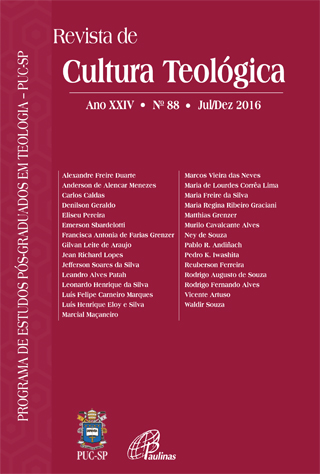Mercy in the Letter to the Romans: the foundation of the history of salvation and Christian ethics
DOI:
https://doi.org/10.19176/rct.i88.30933Keywords:
Mercy, Jew and Gentile, History of salvation, Pauline ethicsAbstract
The theme of mercy is presented in the Holy Scriptures in different ways and present in various contexts. Paul reproduces the variety and richness in his letters. Especially in Romans 9-11; 12,1.8; 15.9, we see a large concentration of own mercy terminology (eleéō, éleos; oiktírō, oiktirmós). Moreover, the theme is developed, from two perspectives, placed in relation by the Apostle. The first shows mercy, as the engine of the history of salvation. While addressing the issue of Israel in this history, especially before Jesus Christ, the savior, the issues are of theological order, or treat God and his plan of salvation. On the one hand, mercy is the engine that, from God, moves the story on the other, it is an expression of the freedom of God, who chooses both Jew and Gentile. The second reflects the theme of mercy for the community of life, such as motivation and encouragement that guide the lives of community members, offering the gifts received in favor of the ecclesial body.Metrics
Metrics Loading ...
Downloads
Published
2016-12-26
How to Cite
Lopes, J. R. (2016). Mercy in the Letter to the Romans: the foundation of the history of salvation and Christian ethics. Revista De Cultura Teológica, (88), 244–272. https://doi.org/10.19176/rct.i88.30933
Issue
Section
Artigos


